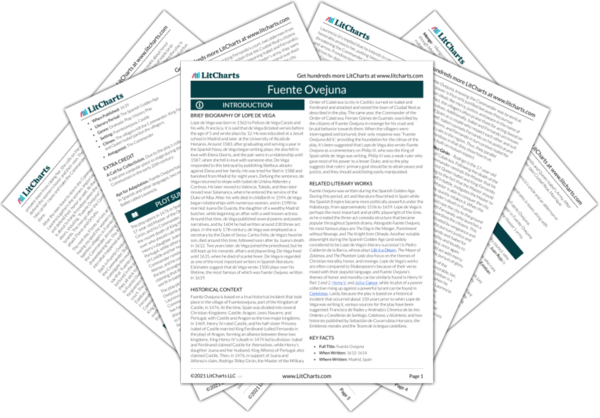The warmth between the King and Queen echoes the love between Frondoso and Laurencia, showing how they, too, share a love based in mutual respect. Additionally, the Master’s penitence—and the King’s acceptance of that penitence—shows that those who are motivated by self-interest are not fit to rule, but those who are humble and act with justice and mercy are treated as model rulers. Lastly, the reference to Grenada illustrates why Christian values were so important to rulers at the time the play is set (the 15th century), as Grenada was still held by Muslim Moors. Therefore, Spanish Christians felt very threatened by forces motivated by something other than Christianity.


